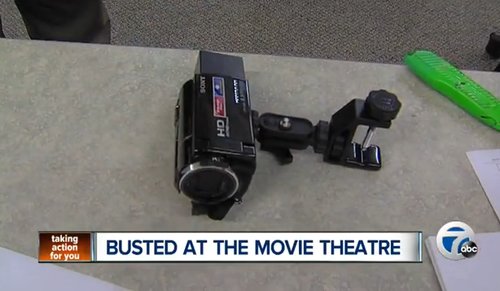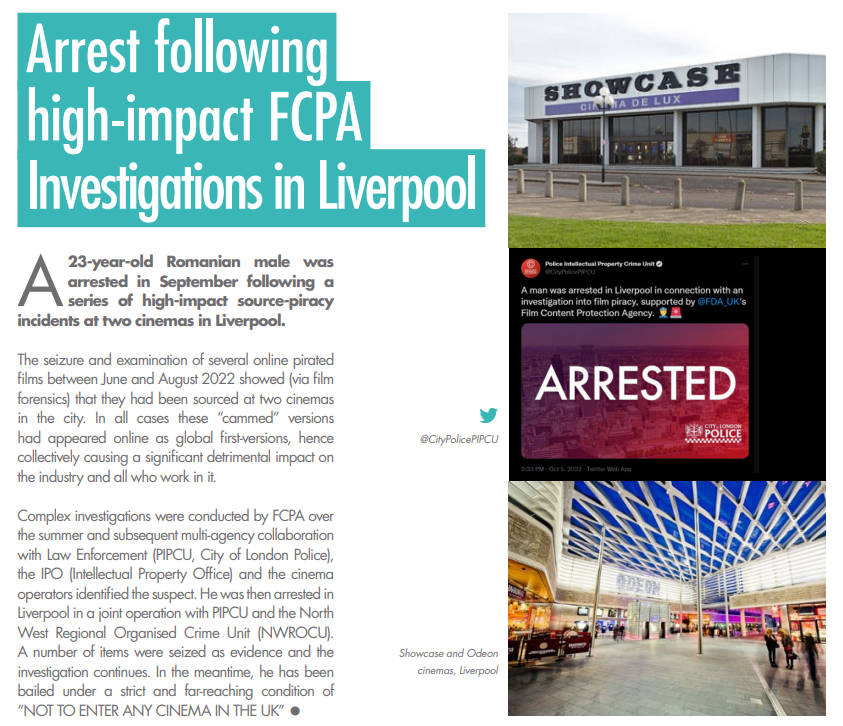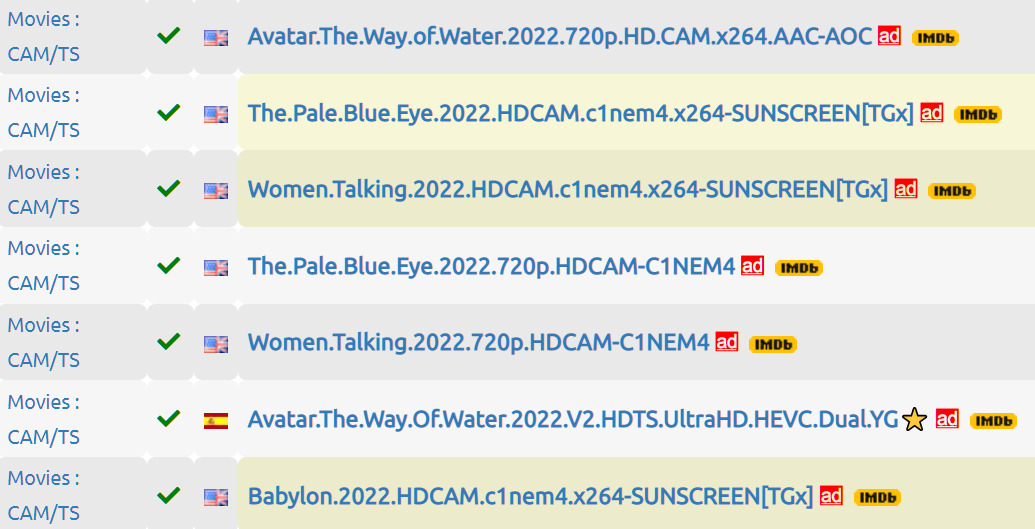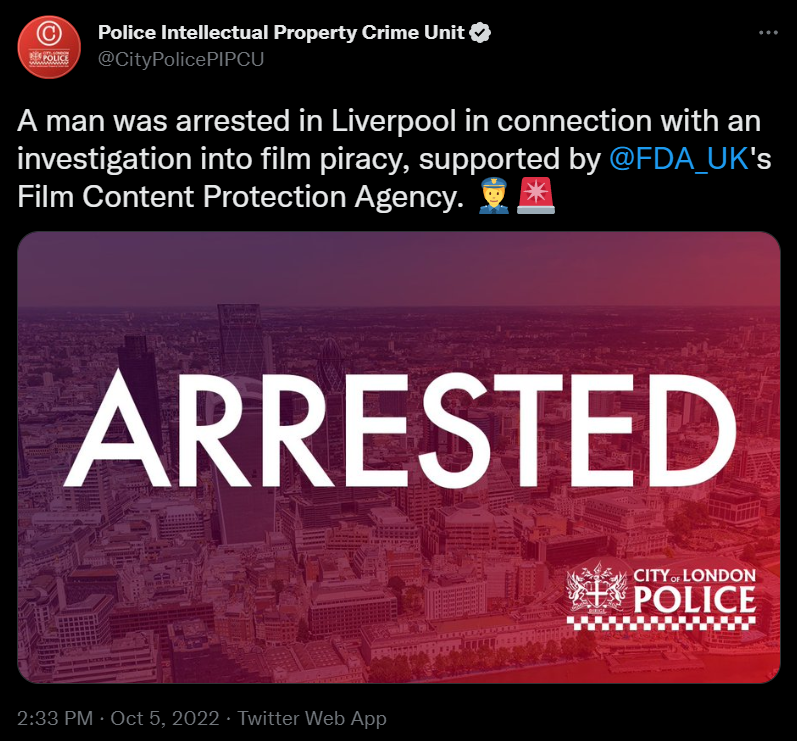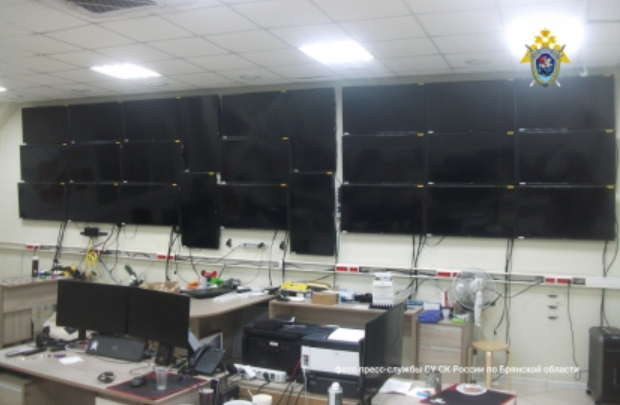-
chevron_right
“90% of All Pirated Films are Recorded in Movie Theaters”
news.movim.eu / TorrentFreak · Saturday, 23 December - 15:15 · 3 minutes
 There’s little doubt that many entertainment industry insiders see online piracy as an existential threat.
There’s little doubt that many entertainment industry insiders see online piracy as an existential threat.
The film business has been hit particularly hard, with movies still the most pirated entertainment category.
Several anti-piracy forces are working hard to address the challenge. This involves concrete actions to shut down piracy sites and services, for example, while stakeholders lobby for stricter legislation and harsher enforcement.
Luckily, some progress is being made as well. For example, earlier this year the UK-based Film Content Protection Agency ( FCPA ) handed out 25 awards to people who helped prevent film piracy incidents in movie theaters.
90% Pirated in Movie Theaters
According to FCPA Director Simon Brown, the sharp eyes of cinema staff prevented several piracy incidents. In fact, not a single leaked film could be traced back to UK or Irish movie theaters.
This makes UK cinemas a relative safe haven when compared to the rest of the world, where piracy is reportedly rampant. “90% of films pirated worldwide are sourced from cinemas,” FCPA reported .
It’s easy to gloss over these kinds of statistics but, in this instance, a few alarm bells could be heard. With a streaming-dominated movie industry, only a fraction of new films are shown on the silver screen. So how could it possibly be true that 90% of all pirated films come from theaters?
A short review of several pirate sites reveals that camcorded films are relatively rare today. The 90% figure is therefore grossly inaccurate, with the real number probably (just a guess) closer to 9%. That applies both to the number of releases and the volume of pirated downloads and streams.
To understand where this mistake originated we asked FCPA’s parent organization, FDA, for their source. Unfortunately, the group didn’t respond and another UK-based anti-piracy group was not able to provide more context either.
The MPA, meanwhile, said that it’s keeping an eye on the camcording problem but doesn’t have any recent data on the percentage of pirated films recorded in movie theaters.
Not a New Claim
Without an official response, we searched for other clues that might signal the origins of the claim. Luckily we didn’t have to look far to find relevant references as the “90%” statistic is regularly cited by rightsholders.
For example, UK anti-piracy group FACT mentioned it in a news release in 2016.
“With 90% of pirated films sourced directly from cinemas around the world, the Fight Film Theft programme is a vital element in protecting the UK film industry,” the group wrote.

That press release didn’t mention a source either. FACT’s statement was made in conjunction with the FDA, which frequently repeats the same statistic without further context.
2023, 2020, 2016, 2012, 2008, 2004…
The 90% figure didn’t suddenly appear in 2016 either. Follow-up searches took us back much further, including this reference from two years prior, where The Hollywood Reporter noted that, “MPAA president Bob Pisano said 90% of pirated films worldwide are the result of camcording.”
Again, it’s not clear where this number originates, but we’re getting closer. Back in 2004, the Motion Picture Association’s Regional Director, Dara MacGreevy, reportedly said that 90% of online films come from camcorder copies.

MacGreevy headed the European branch of the MPA and most 90% of references seem to point to the UK, which may be where the fire is. While we can’t reveal a specific source, it’s clear that statistics from two decades ago are no longer relevant today.
Chinese Whispers
And it gets more confusing too….
One of the earlier reports from 2004 is more specific than others. That statement, which comes from UK anti-piracy group FACT, doesn’t reference the 90% figure in the context of online piracy. It mentions it as a percentage of seized counterfeit DVDs instead.
“According to the Federation Against Copyright Theft, 90% of all pirate pre-release DVDs seized this year were filmed with a camcorder from the back of a cinema,” The Guardian reported.

Needless to say, “seized DVDs” is entirely different from “all pirated movies online”. Yet, both versions appeared in the media two decades ago, and the second one is still cited as an accurate statistic today.
Chinese whispers anyone?
From: TF , for the latest news on copyright battles, piracy and more.

